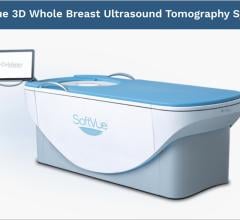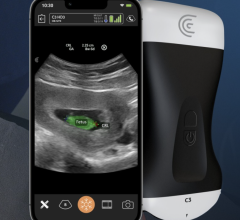
November 21, 2011 — The Canadian Task Force on Preventive Health Care has released an updated guideline for breast cancer screening in average-risk women aged 40 to 74, published in the Canadian Medical Association Journal. The new guideline, which weighs the potential harms of false positives and unnecessary biopsies against the potential benefits of breast cancer screening in average risk women, updates prior guidelines by the Task Force from 1994 and 2001 and recommends against routine screening for women under age 50.
The Task Force was established by the Public Health Agency of Canada to develop clinical practice guidelines that support primary care providers in delivering preventive healthcare. It is an independent body of 15 primary care and prevention experts who recognise and support the need for evidence-informed preventive activities in primary care in Canada. Its mandate is to develop and disseminate clinical practice guidelines for primary and preventive care, based on systematic analysis of scientific evidence.
The new recommendations are presented for the use of mammography, magnetic resonance imaging (MRI), breast self-exam and clinical breast exam to screen for breast cancer. They apply only to women at average risk of breast cancer aged 40 to 74 years. They do not apply to women at higher risk due to personal history of breast cancer, history of breast cancer in a first-degree relative, known BRCA1/BRCA2 mutation or prior chest wall radiation. No recommendations are made for women aged 75 and older, given the lack of data.
The specific recommendations and the Task Force’s comments and bases for its recommendations are as follows:
Mammography: For women aged 40 – 49 we recommend not routinely screening with mammography. (Weak recommendation; moderate-quality evidence) The likelihood of breast cancer is lower and the likelihood of false positive results on mammography is greater in younger women. This recommendation places a relatively low value on a very small absolute decrease in breast cancer mortality and reflects concerns with unnecessary diagnostic testing and overdiagnosis (diagnosis of breast cancer that will not affect length or quality of life). Women who place a higher value on a small reduction in breast cancer mortality and are less concerned about the potential harms may choose screening. About 470 women aged 40-49 die of breast cancer in Canada each year.
For women aged 50-69 years we recommend routinely screening with mammography every 2 to 3 years. (Weak recommendation; moderate-quality evidence) Women who do not place a high value on a small reduction in breast cancer mortality and are concerned about false positive results of mammography and overdiagnosis may decline screening. About 1,900 women aged 50-69 die of breast cancer in Canada each year.
For women aged 70 - 74 we recommend routinely screening with mammography every 2 to 3 years. (Weak recommendation; low quality evidence) Women who do not place a high value on a small reduction in breast cancer mortality and are concerned about false positive results of mammography and overdiagnosis may decline screening. About 480 women aged 70-74 die of breast cancer in Canada each year.
Magnetic Resonance Imaging: We recommend not routinely screening with magnetic resonance imaging (Weak recommendation; no evidence)
Clinical Breast Exam: We recommend not routinely performing clinical breast exam alone or in conjunction with mammography to screen for breast cancer. (Weak recommendation; low-quality evidence)
Breast Self Exam: We recommend not advising women to routinely practice breast self exam (Weak recommendation; moderate-quality evidence).
For more information: www.canadiantaskforce.ca


 July 29, 2024
July 29, 2024 








